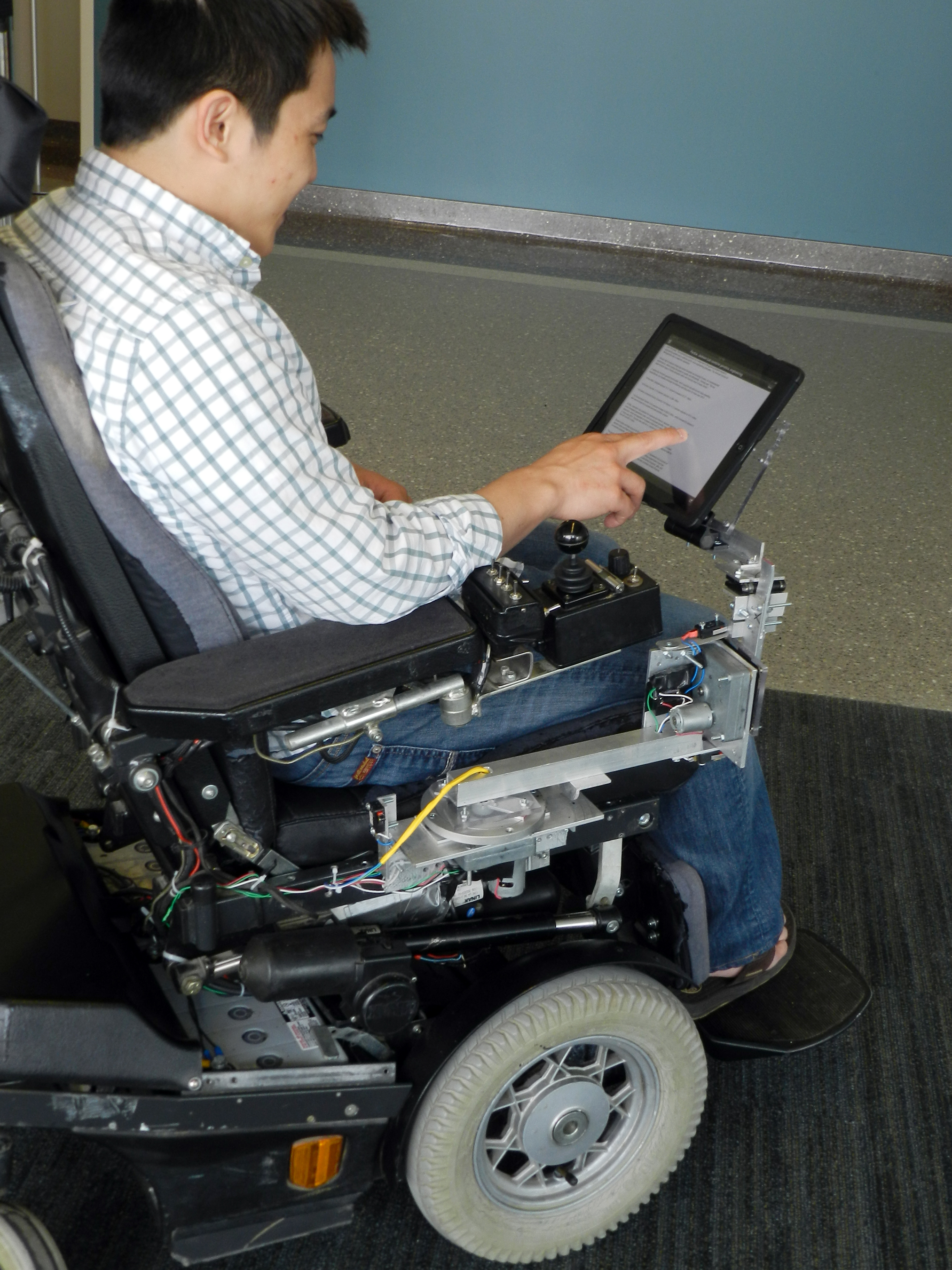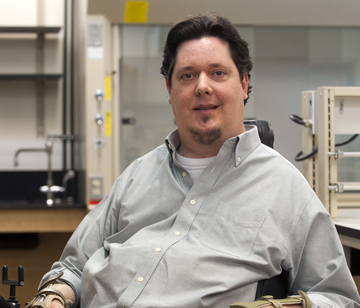Purdue startup commercializes assistive wheelchair technology, develops first prototype
Purdue startup commercializes assistive wheelchair technology, develops first prototype
| Magazine Section: | Innovate |
|---|---|
| College or School: | CoE |
| Article Type: | Article |

Prehensile Technologies, commercializing the technology as RoboDesk, was developed in the laboratory of Brad Duerstock, associate professor of engineering practice in the Weldon School of Biomedical Engineering and School of Industrial Engineering, and Li Hwa Chong, a Purdue alumna, co-founded the company.
Duerstock, who has been developing the technology since 2013 in the Purdue Institute of Accessible Science, says that there are products similar to his on the market but they don’t have the same benefits as his technology.
“There are fixed mounted trays that can be affixed to wheelchairs and other seating systems on the market, but they cannot be moved without assistance and restrict the movements of the wheelchair user,” he says. “The RoboDesk’s removable tray is automatic. It doesn’t affect a wheelchair’s normal seat functions or inhibit the user’s ability to transfer in and out of a wheelchair or maneuver through doorways, which is something that hasn’t been done before.”
The RoboDesk uses a motorized mount on a wheelchair that utilizes an arm to deploy or retract a mobile electronic device such as a tablet or lightweight notebook. The assistive tray’s multifunctional design enables it to be used for other purposes, such as a writing surface or meal tray.
Prehensile Technologies will begin beta testing the prototype to improve the technology.
“Having a prototype is the first step to making the RoboDesk available to the public, where it can really start making a difference fostering independence and improving the quality of life for people with disabilities,” Duerstock says. “The addition of the prototype will allow us to start beta tests with potential customers so we can make the technology as user-friendly as possible.”

The company is performing a comprehensive market analysis as well as researching other market segments where the RoboDesk may be beneficial. Duerstock says the company wants to connect with industry partners.
“Our technology could be used for almost any seating system including wheelchairs, recliners and beds, widening the scope of whom our product could help,” he says. “We want to work with companies who specialize in assistive technologies and those in engineering to help further advance this device based on feedback we receive from our beta tests.”
The company licensed the innovation through the Purdue Research Foundation Office of Technology Commercialization. More than 20 startups based on Purdue intellectual property were launched in the 2015 fiscal year. A video of the technology can be at http://youtu.be/GehfR-exObc.
Comments